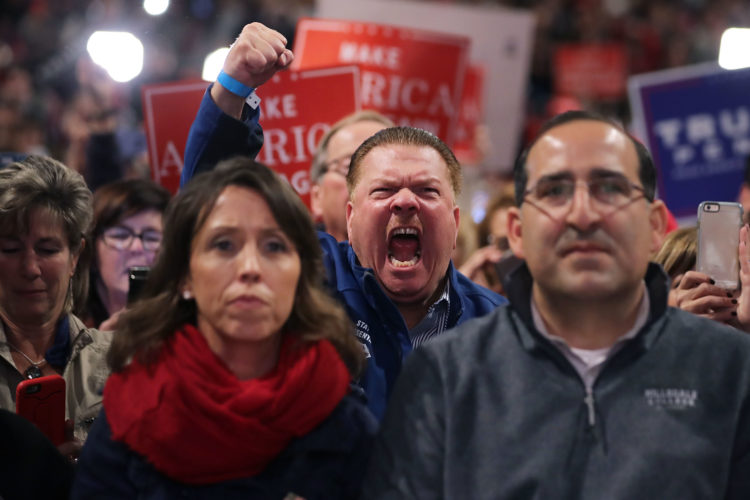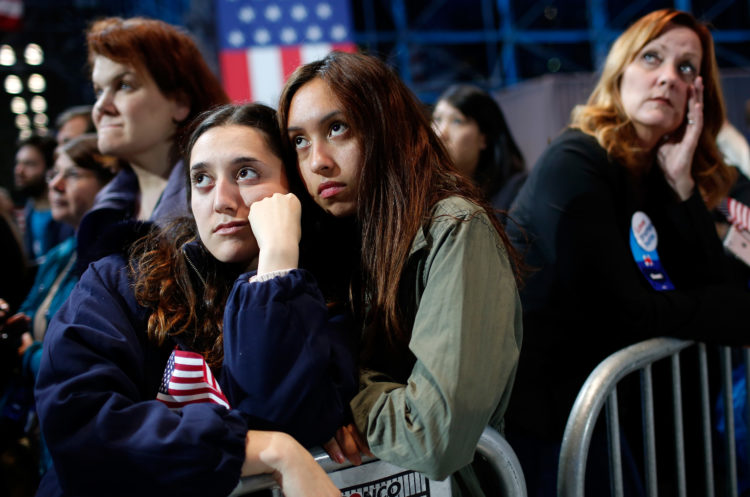Last weekend I was in Verona with an American friend, discussing the state of American politics and, of course, the upcoming election. My friend, whose entire family is white, extremely wealthy and very conservative, mentioned how fast progress was being made in the United States. Too many ‘groups’ demanding too many things, she said, have caused massive division and discord. When it comes to change, she said, those of us who check the minority boxes need to slow our roll.
Who knew so many people agreed? Donald Trump. A Democrat and one-time friend of Bill and Hillary, he has become – not Lena Dunham – the voice of a generation. He is the epitome of the worst kind of politician, saying whatever he can to capitalise on anger and desperation to claw his way to the top office of the United States, the most powerful position in the world.
The rest of the world is full of unknown terrors, from terrorists to unclean water to narrow roads and bad hombres.
But the generation he speaks for doesn’t understand, for instance, my personal story. For them, a bi-racial American woman, born and raised in an affluent suburb of Washington, DC to an African-American father and white mother, is confusing enough. But to move to London, to travel the world, to get a PhD in British history? To the Trump generation, America is the greatest. It is their birth right, as Americans, to ride the coat strings of this great country all the way to the top. Why would anyone want to study anything outside of American history? And why leave the best country on earth to do it?

The rest of the world is full of unknown terrors, from terrorists to unclean water to narrow roads and bad hombres. The Trump generation sees no need to look past America’s borders for any source of information or validation. People like me make them uncomfortable. They force them to look past their borders and think about the wider world. The Trump generation, as someone who voted for Trump put it to me on Facebook, wants to ‘shake things up.’ This means returning to the old days. This means erasing the history and legacy of racial minorities, women, immigrants, the LGBTQ community, disabled people, intellectuals, atheists and anyone who isn’t drinking the ‘We’re Number One’ Kool Aid.
In the late hours, as it became clear Trump would win, I remembered that 20 years ago, when I was first in school, people thought it completely appropriate to ask me which African country I was adopted from when they saw my mom drop me off at school. I remembered my grandfather’s stories, the most poignant one about how, in mid-1930s Alabama, he watched a black classmate drown at the hands of a crowd of whites that drove him into a lake, knowing full well he couldn’t swim. Then I remembered my conversation with my friend in Verona.
The world is changing. Progress is happening. It’s happening fast, and as with anything, when there’s one step forward, there can be two steps back.
And then I remembered my father and mother, defying society to raise three bi-racial children and, as time went on, being called ‘trend setters’ for making it more of the norm. I watched the live stream of Philando Castile’s killing, being consumed with anger and swelling with pride when I could join protests here in London supporting Black Lives Matter.

It’s 11am on 9 November and my Facebook feed is filled with incredulity, anger, sadness and pain. ‘The world is changing, and not for the better,’ a few posts read. But that’s not true. The world is changing. Progress is happening. It’s happening fast, and as with anything, when there’s one step forward, there can be two steps back.
We may feel like we’re drowning now, but we’ve come a long way. And things like this remind us that we still have a long way to go. You can be angry, or sad, or shocked or upset. But remember that we’ve made progress, then retrench and get ready to push upward and onward.
